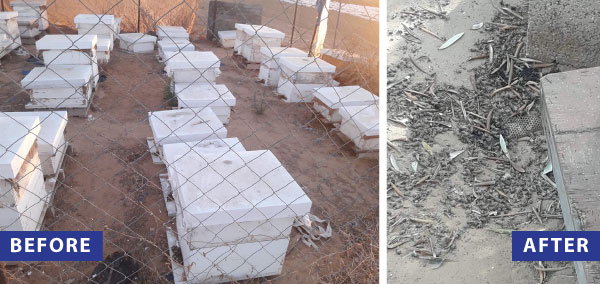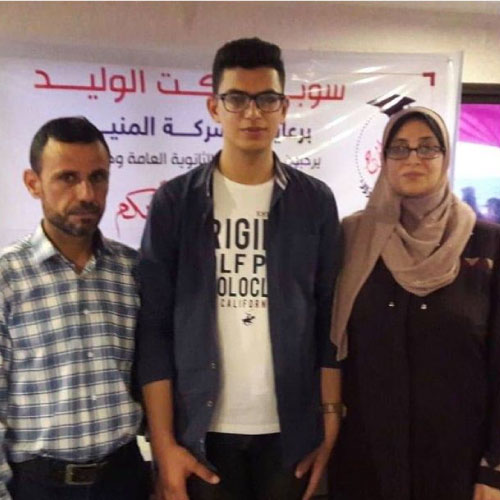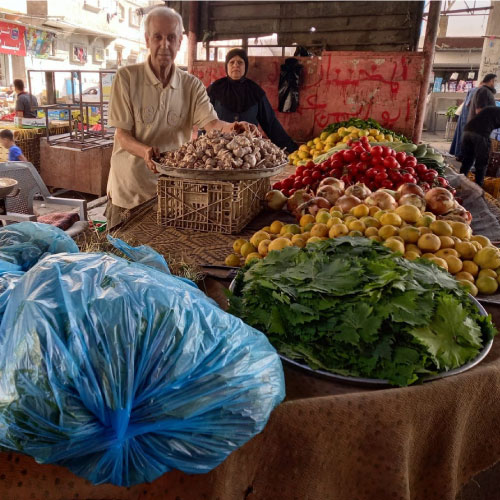Like many of you our LE.O Community far away from home sat helplessly watching the news, our mobiles and social media these past few weeks, praying that nothing would happen to our families and too terrified to sleep, and unable to eat. The terror and pain was felt by all of us in the LE.O Community, and made worse by our feelings of helplessness.
LE.O was deeply impacted by events back home, as we come from all over Palestine, including Palestine ’48. Our students had many stories to report, and here are just a few:
- A father in Hebron was gassed on his way home with groceries to make the Eid Feast.
- Friends were killed
- A parent who is a farmer in Gaza lost most of his bees as they were gassed, and the farm crops totally destroyed, 23 family members live on the farm. As they live 1 klm from the border they were forced to evacuate and slept on the streets for a few nights as they couldn’t find shelter.
- A 12 year old sibling asked his sister studying in the US, if death would be painful.
- The young children in the households asked if the families could huddle together to sleep so that they may be together in death.
- Two young men studying at Cairo University had just left Gaza the day before the attacks, it had taken them three years to get home to visit their family (another complicated story), and now they were safely back in Cairo unable to think of anything except their loved ones that they had just left behind. Feeling a terrible sense of guilt and fear, imagining only the worst outcome.
- Our parent who sells fruits and vegetables in an open market located in a camp reports many farmers loss their crops, making it harder for him to find produce to sell.

We now have students we support for study in Gaza so I was in constant communication with them. Most would reach out to me in the early hours of their morning just before the strikes, unable to sleep, fearing for their lives and that of their families. They expressed paralyzing fear of impending doom, and needed some form of reassurance that they would survive another day, holding on to their dreams of becoming doctors or young professionals in their fields of study, one day.
For Iman who recently returned home to Gaza after completing her Masters in Women and Gender Studies with us, this was a nightmare of epic proportions, as she had lost both parents, two brothers and a nephew during the 2014 attack. Daily she sent reports of what life was like for her and her surviving family:
7:30 am. I don’t even know what day it is any more. I rested my eyes for only an hour and woke up to not only airstrikes but also artillery shelling happening at the same time. My sisters and Selena are still sleeping. They are so exhausted, the shaking of the house hasn’t woken them up yet. I hope things stay that way because my sisters hadn’t slept for over 20 hours. Still don’t know what areas were hit, but I can tell by the sound and intensity that several of them were here in north Gaza.
Facts about Palestinians living in Gaza: Years of experience being bombed gave birth to a polished ability to tell the difference between the sound of artillery shelling and the sounds of different types of missiles. We can also tell the difference between the several types of warplanes used by Isra*el for firing different sizes of rockets by sound. Recently, we’ve even tailored our skills in estimating how far away an explosion is by how loud it sounds and how hard the house shakes and started using that as a way to comfort the children. A few days ago, I even watched my 9 year old nephew comfort his scared 6 year old cousin by explaining to him that the explosion was at a safe distance because the house would have shaken harder if it were closer. It dawned on me that so many things that are NOT NORMAL have become normalized for these children. This is their life, and IT SHOULDN’T be their life. IT SHOULDN’T BE NORMAL!!!!
My family is originally from Najd, which was a Palestinian Arab village, located 14 kilometers northeast of Gaza City prior to 1948. On May 13, 1948, the Negev Birgade expelled all villagers at gunpoint as part of Operation Barak (feel free to google those for more information). In an attempt to survive, my grandparents took their children and all they could collect of their belongings and fled to Gaza city. My father was only one year old when he became a refugee in his own country and 67 years old when he lost his life in an Israeli airstrike that targeted the house of our neighbor without warning. Along with dad, my mom, my two older brothers, and my nephew were violently killed and then labeled by Isra*el as “collateral damage.” The house I grew up in was destroyed and renovated since the last attack in 2014, and we continued to live there despite the trauma because that’s the only home we’ve ever known, and it’s where most of our family memories were made. Our house is not very far from the northern border with Isra*el, so that puts anyone who stays in it at a direct risk of not just airstrikes, but also artillery shelling. I am not in my home right now. Just like my grandparents had to leave their home at gunpoint, and because my parents didn’t even have time to leave their home to save their lives, I had to leave my home to stay alive. Now all I can think about is the conversation I had with dad the day before he died. Isra*el in 2014 was just threatening to do a land invasion of Gaza, and everyone I knew who lived by the border was evacuating. I begged dad over the phone to leave because the house is within the artillery’s range of harm, and he said to me something I will NEVER forget: he said that if he is meant to die, he would rather die in his own home. He also said that it doesn’t matter where you go because if you’re far from the artillery’s range of harm, an airstrike could get you anywhere. He was right—an airstrike was what killed him, not the land invasion. When this conversation took place, I was in the US completing my BA, and experiencing all of this terror from afar and struggling with my survivor’s guilt. Now that I am experiencing it firsthand, I can understand dad’s logic and I feel the same way. I want to be in my own home when I die.
Abdallah who has been unable to join us in the US to start his studies this past year due to covid somehow managed to pull together his Palestinian steadfastness and attended a Zoom event I moderated about the documentary the “Mayor”, during the bombings. Dedicated to his volunteer position as Director of Communications at LE.O he attended the event with a smile on his face, even though the sound of the bombing was clearly heard by attendees during the Break Out session of the event.
He wrote a heartfelt poem during the bombings and I shared it with a friend in Norway. The response to his words were instantaneous and he has been invited to participate in the Oslo International Poetry Festival 2021!
Precious, yet fragile
By Abdallah
Each bomb, you feel it three times.
Once born,
whistling through the sky,
and as it steals the born.
As you hear it, you get the chills,
tears… heart race.
You cling to something
stunned..
As if you’ve never heard
something like it before.
It gets to where it gets,
does its thing.
steals the born.
and so your balance and thoughts.
Does not discriminate.
Embraces whatever’s in the way.
Theoretically, moral.
But in practice..
Don’t we always argue where moral compasses stem from?
Everyone’s watching in awe
Others shouting,
or chanting — so to feel strong from within.
As selfish as you want to be for your own,
you still think of others
their grief,
Displacement,
Fear
They still had
happiness to feel,
sadness to overcome,
lives to live,
and souls that were
precious, yet fragile.
We are bystanders
silent..
neutral..
performatively objective..
In awe
It’s your turn!
a drone strike may warn!
Or may not…
It didn’t warn many before you.
90 seconds
and counting…
Fair or unfair? not my dilemma.
Enough time to pack?
Phone.. passport..
my childhood photo album?!
Oh I’ve been craving those cookies in the drawer too!
Everything feels so precious
to leave behind.
“We’re not the ones being hit”
I watched
Associated Press and Aljazeera journalists say
in denial
as they evacuated…
“Flatten it!” warmongers said earlier
And so they did
Will there be an appetite
for the drawer cookies
somewhere under that rubble.
Lying like a hidden secret
Of happiness,
of memories,
of love,
Of Home
Gaza, Palestine May 2021
Aya and Yahya are once again back at university preparing for exams in two weeks. Both report their homes are ok but their surroundings are obliterated.
We spoke daily about the importance that they stay strong throughout to support their families as Yahya is the eldest of 6 children, and Aya is an only child of elderly parents.

Yahya with parents.

Aya’s parents at their vegetable stall in the camp.

Ahmed
We could not sit by and do nothing, during this time we received a request for educational support from a young man named Ahmed, and after vetting him and his brother, we decided to engage.
His father who supported the family of 8 as a plumber, died 5 years ago and his mother is unable to work due to illness, so they have depended on extended family for their daily needs. Ahmed’s younger brother attended vocational school and followed in his father’s footsteps but has been unable to work as he couldn’t afford the cost of his diploma, just under $500. Ahmed is completing his education in Medical Imaging this summer and he needed funding to register for his final semester so that he could graduate. We felt this was a good investment to help launch these two hard working brothers so that they could lift up their entire family.
It feels like there is never a good time to ask you to engage with LE.O’s mission. We feel that if we want to make life better for Palestinians, we need to start somewhere. And for us at LEO that begins with youth education.
We are investing in a generation that can take charge of its future. We ask you to join us in our mission to ensure a brighter future through education. Your gift will make a lasting impact.
